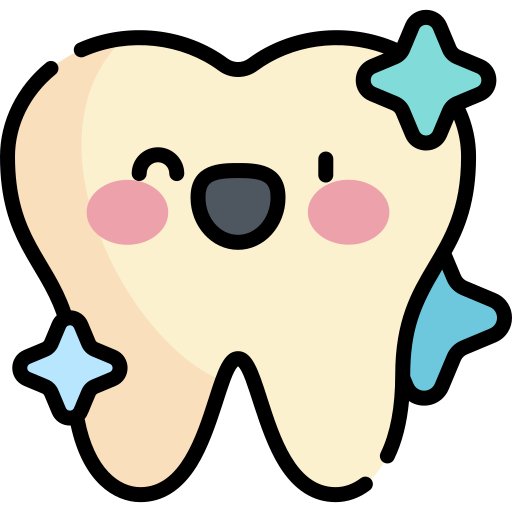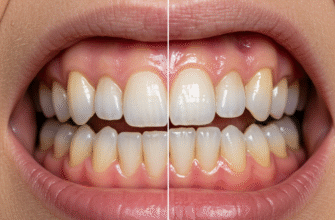That throbbing, sharp, or even dull ache in your tooth or jaw – it’s a special kind of misery, isn’t it? Dental pain has a unique way of disrupting everything: your focus, your sleep, your ability to enjoy a simple meal. When it strikes, especially if it’s after hours or you can’t get an immediate dental appointment, the first thought is often, how can I make this stop, or at least lessen, right now? Finding some measure of relief, even temporarily, becomes an urgent priority.
It’s a feeling many of us unfortunately know all too well. The intensity can range from a mild sensitivity to an excruciating pain that overshadows everything else. While the definitive solution almost always involves a trip to the dentist, there are indeed some steps you can take in the interim to manage the discomfort and make life a bit more bearable until you can get professional help. Think of these as first-aid for your mouth, not a cure-all, but a way to regain some control when pain tries to take over.
Finding Some Calm: Initial Steps for Pain Management
When dental discomfort first makes its unwelcome appearance, your immediate goal is to reduce the pain and inflammation. Remember, these are temporary measures. The underlying cause needs a dentist’s attention, but these strategies can help you cope in the meantime.
Gentle Rinsing: A Soothing Start
One of the simplest and often surprisingly effective first steps is a warm salt water rinse. Dissolve about half a teaspoon of regular table salt in a cup of lukewarm (not hot!) water. Swish this solution gently around your mouth for about 30 seconds, focusing on the painful area, and then spit it out. Do not swallow the saltwater. This can help to clean the area, dislodge any trapped food particles that might be contributing to the irritation, and can have a mild soothing effect on inflamed gums. You can repeat this several times a day.
Some people also find a very dilute hydrogen peroxide rinse helpful, but this should be used with extreme caution and always significantly diluted (typically one part 3% hydrogen peroxide to two parts water). Swish, spit, and rinse thoroughly with plain water afterwards. However, for general purposes, the saltwater rinse is often a safer and gentler first approach.
It’s crucial to understand that these home care strategies are for temporary relief only. They do not address the root cause of dental pain. Persistent or severe pain always requires a professional dental examination to prevent complications.
Cold Compress: Numbing the Discomfort
If you’re experiencing swelling along with the pain, or if the pain feels particularly sharp and localized, a cold compress can be your friend. Wrap a few ice cubes in a thin cloth or use a small bag of frozen peas. Apply this to the outside of your cheek, near the painful area, for about 15-20 minutes at a time. Take breaks of at least 20 minutes before reapplying. The cold helps to numb the area, reduce blood flow, and can significantly bring down swelling and inflammation, thereby easing the pain.
Never apply ice directly to the tooth or gums, as extreme cold can sometimes make certain types of dental pain worse or damage tissues. Always use a barrier like a cloth.
Over-the-Counter Pain Relief
Common over-the-counter (OTC) pain relievers can be effective in managing dental pain. Medications like ibuprofen are often suggested because they have anti-inflammatory properties, which can be particularly helpful if swelling is involved. Acetaminophen can also help with pain but doesn’t have the same anti-inflammatory effect. Always follow the dosage instructions on the packaging carefully and be mindful of any other medications you might be taking or any pre-existing health conditions. If you’re unsure, a quick call to your pharmacist or doctor can provide guidance.
Pharmacists can often provide good advice on suitable over-the-counter pain relief options based on your general health. However, they will also likely advise you to see a dentist for the underlying issue. Always read and follow the label directions for any medication.
Elevate Your Head
This might sound overly simple, but when you lie down flat, blood pressure in your head can increase, which can sometimes intensify a throbbing toothache. Try propping your head up with an extra pillow or two when you’re resting or trying to sleep. This slight elevation can sometimes help to reduce the throbbing sensation and make it a little easier to get some rest.
Avoid Irritants
This is a big one. Pay close attention to what makes the pain worse and try to avoid those triggers. For many people, this means:
- Very hot or very cold foods and drinks: Extreme temperatures can be a major trigger for sensitive teeth or an inflamed tooth nerve. Stick to lukewarm or room temperature options.
- Sugary or acidic foods and drinks: These can irritate already sensitive areas and potentially exacerbate the problem, especially if a cavity is involved.
- Hard or chewy foods: Chewing on the affected side can obviously make things worse. Try to eat softer foods and chew on the opposite side of your mouth if possible.
Navigating with Caution: What to Avoid
In the quest for relief, it’s easy to stumble upon old wives’ tales or advice that might not be helpful, or could even be harmful. It’s just as important to know what not to do.
Don’t Ignore Persistent Pain
While the strategies above can offer temporary comfort, it’s absolutely vital not to use them as a way to indefinitely postpone a dental visit. Pain is your body’s signal that something is wrong. Masking it continuously without addressing the underlying cause can lead to more serious problems down the line, potentially resulting in more complex and costly treatments. A small issue ignored can become a big one.
Steer Clear of Certain “Home Remedies”
You might hear suggestions like placing an aspirin directly on the gum or tooth. This is a bad idea. Aspirin is acidic and can cause a chemical burn on your gum tissue, leading to more pain and irritation. Always take pain medication as intended – by swallowing it.
Similarly, while some essential oils like clove oil are traditionally mentioned for toothache, they should be used with extreme caution and heavily diluted. Undiluted clove oil can also irritate or burn soft tissues. If you choose to try it, apply a tiny amount on a cotton swab directly to the tooth (avoiding gums as much as possible), and understand it’s a very temporary numbing agent, not a fix.
Attempting to self-treat a serious dental issue can have negative consequences. Applying harsh substances directly to teeth or gums can cause further damage. Always prioritize professional dental advice for diagnosis and treatment.
Recognizing Red Flags: When to Call the Dentist Immediately
While some dental discomfort might be manageable temporarily at home, there are situations where you should seek professional dental care without delay. These symptoms could indicate a more serious issue, like an infection, that needs prompt attention.
- Severe, unbearable pain: If the pain is so intense that OTC pain relievers offer no relief and it’s significantly impacting your ability to function.
- Swelling in your cheek, jaw, or gums: Significant swelling, especially if it’s spreading, can be a sign of an abscess or infection.
- Fever: A fever accompanying dental pain is a strong indicator of infection.
- Difficulty breathing or swallowing: This is a serious symptom and could mean an infection is spreading. Seek emergency care.
- Pus or a bad taste in your mouth: These are classic signs of an infection or abscess.
- Pain that worsens over several days: If your pain isn’t improving or is actively getting worse despite home care.
- Trauma or injury to a tooth: If a tooth is knocked out, chipped, or loosened due to an accident, see a dentist as soon as possible.
In these instances, don’t wait. Contact your dentist for an emergency appointment. If it’s outside of regular hours, many dental practices have an emergency contact number or can advise you on where to seek urgent care.
Looking Ahead: The Best Defence
While this article focuses on coping with existing pain, it’s worth briefly mentioning that the best way to deal with dental pain is to prevent it from happening in the first place. This isn’t always possible, of course, as accidents happen and some conditions can arise unexpectedly. However, consistent good oral hygiene plays a massive role.
This includes:
- Brushing thoroughly twice a day with fluoride toothpaste.
- Flossing daily to clean between teeth and under the gumline where a brush can’t reach.
- Regular dental check-ups and cleanings: Your dentist can spot potential problems early, often before they become painful, and professional cleanings remove plaque and tartar buildup.
Preventative dental care, including regular check-ups and good daily oral hygiene, is widely recognized as the most effective way to avoid many common dental problems. Early detection and treatment of issues can prevent them from escalating into painful emergencies. This proactive approach is key to long-term oral health.
Final Thoughts on Navigating Dental Pain
Experiencing dental pain is undoubtedly unpleasant, but hopefully, these suggestions can provide you with some effective ways to manage the discomfort until you can see your dentist. Remember, the goal of these home care strategies is temporary relief. They are bridges to get you through a tough spot, not substitutes for professional diagnosis and treatment.
Your dentist is equipped with the knowledge, skills, and tools to determine the exact cause of your pain and provide the appropriate treatment to resolve it properly. So, while you use these coping mechanisms, make that dental appointment your top priority. Taking care of your oral health is an important part of your overall well-being. Don’t let dental pain linger – take action, both in seeking immediate comfort and in getting the professional care you need.








